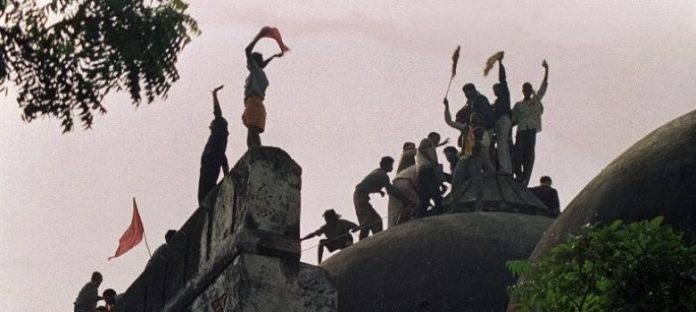By Muddassir Ahmad Qasmi for Twocircles.net
The demolition of the Babri Masjid was not merely a communal insurgency which claimed hundreds of innocent Muslim lives across India; rather it was a big blow to Muslims’ religious identity. It was also a blatant attack on the secular ethos of the country and the two communities have been at loggerheads ever since the masjid was brought down. About 24 years back on 6 December 1992, evil forces demolished the historic Babri Masjid for political gain, and in doing so they broke the hearts of about 200 million Muslims which always beat for Indian democracy. It fissured and ruptured the uneasy calm and harmony between the two communities and gave rise to animosities that are yet to be doused.
And now after 24 years of waiting, the Supreme Court of India has called for a consensus to end the dispute. The Supreme Court, offering its mediation to arrive at an amicable settlement, said “These are issues of religion and sentiments. These are issues where all the parties can sit together and arrive at a consensual decision to end the dispute. All of you may sit together and hold a cordial meeting,” The observations came after BJP leader Subramanian Swamy raised the matter, as it is his wont, seeking urgent hearing of the issue.
No doubt it is a sincere effort from the apex court, but in reality, it is impractical owing to the several failed attempts of the past. Long experience shows that whenever an effort is made for reconciliation, the Hindu parties (in the dispute) tried their best to persuade Muslims to leave the Babri Masjid land for Ram Mandir and construct a Masjid in another place. How ridiculous it is that they talk of reconciliation but force Muslims to hand over the controversial land. If this is their intention, then surely such kind of attempt is useless.
Muslims have made it clear, time and again, that the High Court verdict of September 30, 2010, was not acceptable to them as it was based on faith and not on evidence. The judgment upholds the faith of one community over the other while ignoring evidence. The observation of Indian Muslims was that the HC judgment suffered from a number of infirmities and, therefore, it was the obligation of the Muslims to challenge it in the apex court, which they did.
Though the legal battle over the ownership of the Babri Masjid will continue, it needs to be noted that the concern of the Muslims with regard to the Babri Masjid stems from their desire to protect their places of worship in accordance with the rules of the Shariah, and not from any identification with or support for Babar or from association with a particular bit of land. That is why Muslims cannot surrender their claim on Babri Masjid because the commandments of the Shariah cannot be ignored. The Shariah has clearly stipulated that as soon as a place becomes a Masjid its ownership is wholly transferred from out of the hands of human beings. Once a place becomes a Masjid, it remains so forever, even though it might become dilapidated or is no longer prayed in or even if no Muslims live any longer in its vicinity. Even in such conditions, it cannot cease to be a Masjid, and no one can change its status.
The last and the final question in this issue is that if the Supreme Court gives a verdict against Muslims, will it be acceptable for them? The answer is quite clear that after going through the concrete evidence in support of Muslim claims, most hopefully, the verdict will come in the favour of Muslims but in case it is otherwise, Muslims will accept it, though actually, it will be a mere compromise.
However, the sorry legacy of the Babri Masjid demolition cannot be wished away even on the insistence of the well-meaning statements by some members of the majority community for it has ripped apart the social and cultural cohesion that had bound the two communities and it will, unfortunately, continue to bedevil the peaceful co-operation and relations between the two communities. Therefore, we appeal to the Supreme Court of India for a speedy judgment so that political mafia does not continue to play their political games with the sentiments of the people in the name of religion.
The writer is assistant editor of Eastern Crescent, Mumbai.


